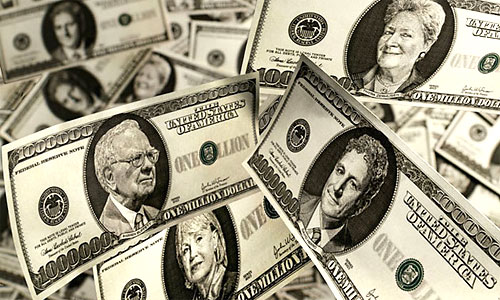Source:

The World's Greatest Investors by Dyan Machan and Reshma Kapadia
If the stock markets were a public beach, the red "high hazard" flags might still be flying over the lifeguard's chair. Or at the very least, a strong yellow. The summer has been calmer than the spring, but not by much, not with the foundering euro and stubborn unemployment at home offering daily reminders that global economic waters are still choppy. And the stock market remains as riptide-prone as ever. According to Schaeffer's Investment Research, the Dow is on pace to register 90 days this year with swings of 100 points or more—more than twice as many as in any of the three years before the crash. As fund managers keep warning, many of last year's top-performing stocks were risky or near-death companies that now are struggling once again. Small wonder that many mainstream investors remain anxiously on shore—collectively, Americans hold $9.4 trillion in cash, 27 percent more than in 2007.

Read the whole article here






